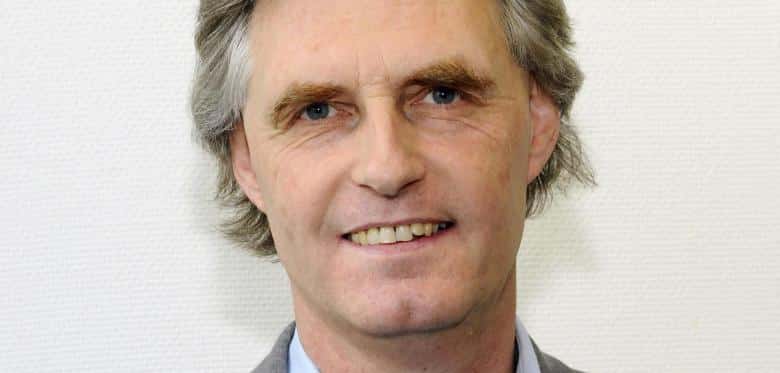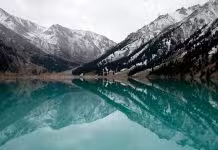We often observe that the politicians do not take science into consideration or that scientists provide contradictory information. Who tells the actuall facts and what ist the right thing to do? We discussed with evolutionary bioligist Prof. Ulrich Kutschera.

Science versus Politics: Evolution and races
Interview with Prof. Ulrich Kutschera (Part 1)
Is evolution and the concept of human races politically correct?
We often experience that science and politics do not go along together well. You have examined this problem in your last book “Climate change in emergency state – Biological realities refute political utopias” (Klimawandel im Notstandsland. Biologische Realitäten widerlegen Politische Utopien. Amazon Media, 2020). Why do you think this is a problem?
Ulrich Kutschera: I have published more than 300 scientific papers and wrote 14 books on the evolution and physiology of organisms. In several of these publications, I have discussed the relationship between natural science and politics. Yes, my most recent book is also politically incorrect, because I tell the truth. There is a saying in German: “Wer die Wahrheit sagt, braucht ein schnelles Pferd”, which means “who tells the truth, needs a fast horse”.
The problem can be summarized as follows: Until maybe 20 years ago, politicians used to take advice from independent scientist, and political decisions were largely based on scientific facts. Then, this attitude changed. Nowadays, independent scientist are not of much importance any more. The “state-scientists”, who say what the government wants to hear, are hired by bureaucrats and invited to talk in mainstream media. The government- independent scientists are no longer welcome – notably when it comes to the Corona-Virus, for example.
Politicians think that; when they hire a few so-called experts, and these specialist confirm what the politicians claim, then everything is ok. By this way, they can maintain their power. This currently happens in the USA and in many European countries.
How about the society? Many mainstream ideas are not based on scientific facts neither. For example; the theory of evolution is scientifically proven, but religious dogma still has a big power and influence on the opinion of the people.
Ulrich Kutschera: The answer is simple: Natural sciences (biology, chemistry, physics and geology) are complicated and people get confused. When I ask my students to explain Darwin’s basic principle of natural selection, most of them cannot explicate this rule of nature. Unfortunately, 90 percent of the explanations, when it comes to Darwin, are deficient or wrong in our schoolbooks.
What I want to say is this: Natural sciences are no longer important in our school system. Our pupils do not learn enough biology, chemistry and physics. We cannot discuss biology without a strong background in chemistry and physics. Natural sciences are important, and everybody should understand their basics at some level. Otherwise, we will intellectually travel back to the Middle Age.
Unfortunately, we cannot expect an average person to explain Darwin’s classical theory fully. Can you please clarify what evolution means to an evolutionary biologist?
Ulrich Kutschera: Natural sciences strictly depend on clear and precise definitions. For example, “Evolution”, according to Darwin, means “decent with modification”. According to Theodosius Dobzhansky, another great scientist, it denotes the changes in heritable composition of a population, when you look at the gene pool.
We can explain this as follows: Children are similar to their parents, but not identical. This is due to sexual reproduction. Before the sex cells (sperm and egg cell) are produced, genes are reshuffled, which we call “genetic recombination”, and this process causes heritable mutations. That means that the next generation is always genetically different from the parents. Then, you must also consider the changing environment. Those individuals, who are, by chance, better adapted to the environment can survive, find a partner and pass on their genes to the next generations.
There is another fact: The genes are inherited from one generation to the next. Therefore, you have a sequence of generations. And there are variable environmental conditions. The gene pool is, thus, continuously modified.
Evolutionary history of mankind started in Sub Sahara Africa: A first group of humans emigrated to Asia circa 120 thousand years ago, 20 to 40 thousand years earlier then the next group. This may explain why the Asians have higher IQ then other populations. Then, another few thousands Africans emigrated to Europa and then other regions became populated.
Recently, it was discussed that the word “race” should be removed from the German Constitution, as it was found to be politically incorrect to use this word today. What is your comment?
Ulrich Kutschera: Politicians confuse biological facts. Obviously, they do not know that there are 5 geographic variants, in another word, “human races”: Africans, Asians, Caucasians, American Indians and Oceanians. What we call “race” is simply the a large population with respect to its geography distribution. Therefore; Turks, Germans and Arabs belong to the same race: They are Caucasians.
Race is a scientific term, Racism is an ideology based on politics, religion and culture. As an impartial and multi-cultural scientist, I always avoid any kind of ideology. Racism has no root in science. On the contrary: the facts that modern mankind originated in Africa is only circa 250 thousands years old, and that we are genetically very similar (with the exception of man versus woman), is a powerful argument against Racism. I have discussed this important topic in detail in my most recent book, which we mentioned in the first question.
To be continued.
About Ulrich Kutschera
Prof. Dr. Ulrich Kutschera is working as evolution biologist and microbiologist at University Kassel in Germany and at University of Stanford in the USA. He has written 300 academical papers and 14 books about genders, immigrations, races, photosynthesis and CO₂. He was born in Freiburg in 1954 and studied Biology, Chemistry and Music at Freiburg University. Wikipedia




